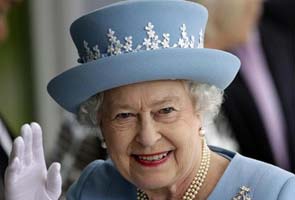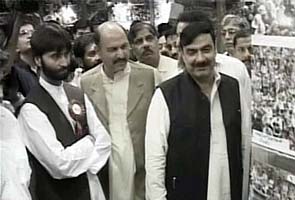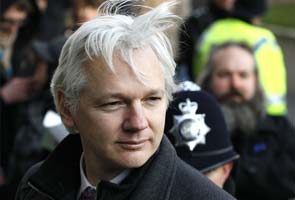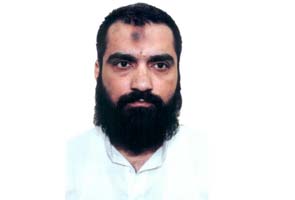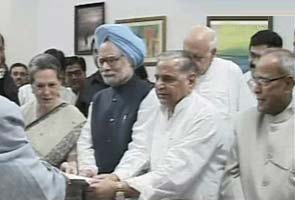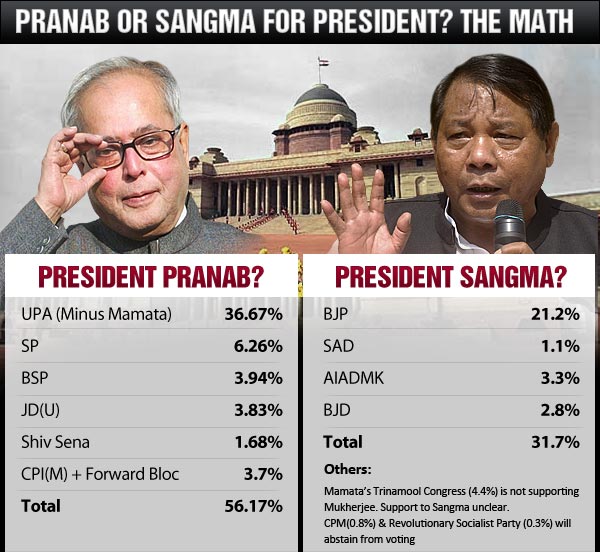On May 3, the day after an artful deal to end the diplomatic crisis over Chen Guangcheng, China's now-famous dissident, unravelled spectacularly, Hillary Rodham Clinton followed a scrum of Chinese ministers around an exhibition of clean cook stoves. These are safer, portable alternatives to the crude stoves used by hundreds of millions of women in the developing world - at grave risk to themselves, their children and the planet. Not long after becoming secretary of state in 2009, Clinton took up the cook stove cause, one of what she describes as "smart power" issues - though sceptical veterans of American foreign policy tend to deride them as soft more than smart.
In September 2010, Clinton announced the creation of a partnership led by the United Nations Foundation to provide 100 million cleaner and more efficient stoves around the world by 2020, and she has since used every opportunity to implore world leaders to adopt policies to encourage their use. Among them was China's top foreign-policy official, Dai Bingguo, with whom she first raised the issue over lunch at the State Department in May 2011. Clinton can recite the arguments by rote: The smoke from poorly ventilated stoves kills nearly two million people a year, more than malaria. Foraging for wood consumes the time and effort of women and children and exposes them to attack. The stoves are a significant source of black carbon in the atmosphere, contributing to climate change. After a year of discussion, Dai agreed to put it on the agenda for their annual meetings this year in Beijing, raising the prospect that China, which accounts for more than a quarter of the world's deaths from the old stoves, would become the 33rd country to join the partnership that Clinton started.
The Chinese are fussy about diplomacy and protocol - they like neither surprises nor confrontation - and months of preparation went into the meetings in Beijing. Then late at night on April 25, a week before Clinton was to arrive, she held an emergency conference call over secure lines with her top advisers at the State Department, arriving at a decision that put the entire visit at risk, not to mention years of effort to improve relations with China. Chen, a blind, self-taught lawyer who endured a prison term and ongoing harassment, had escaped house arrest in his village in Shandong Province and made his way to the outskirts of Beijing. An American diplomat secretly met with him there and reported back to Washington that he needed urgent medical treatment in the only safe place imaginable: the American Embassy in Beijing, where a doctor could examine him. After her aides briefed the White House, which traditionally does not involve itself in consular affairs, Clinton agreed. Hours later, the Americans spirited him in. The next challenge was to resolve Chen's fate in a way that wouldn't scuttle essential Chinese cooperation on the nuclear ambitions of Iran and North Korea, the worsening conflict in Syria, the fighting between Sudan and South Sudan, cyber-attacks emanating from China - and cook stoves. No one close to her would dare put it quite this way, but a question at the heart of her legacy is this: As important as the plight of Chen might be, what is it compared to the deaths of nearly two million people a year from toxic smoke in their kitchens?
What has been most striking about Clinton's tenure as secretary of state is at once how suited for the job she has proved to be and how improbable it once seemed, even to her. "Not in a million years," she replied by e-mail in November 2008 when her political aide Philippe Reines first told her that President-elect Barack Obama was considering her appointment, despite having derided her experience in foreign affairs as first lady during the campaign. His experience, Obama said during the primaries, was "grounded in understanding how the world sees America, from living overseas and traveling overseas, and having family beyond our shores" and "not just of what world leader I went and talked to in the ambassador's house, who I had tea with." It's true that Clinton lacked the foreign-policy experience of recent secretaries like Condoleezza Rice, Colin L. Powell or Madeleine K. Albright. Nor was she personally close to Obama in the way James A. Baker III was to President George H. W. Bush. What she possessed was energy, the dogged loyalty she displayed campaigning for Obama after she lost and, not insignificant, her fame. Clinton vacillated for days, at one point deciding to decline. (Her aides say Obama would not take no for an answer; he avoided at least one phone call from her, the story goes, by having an aide explain he was in the bathroom.) Ultimately, as the chief of protocol of the United States, Capricia Penavic Marshall, who has worked with Clinton since she was first lady, told me: "When asked to serve, she does. And her president asked."
The buzz at the time was that Obama was building a "team of rivals" to oversee national security - not just Clinton but also Vice President Joseph R. Biden. They all had "their own public profiles and their own public histories and their own policy views," as Obama's national security adviser, Thomas E. Donilon, told me. The meme was a presumptuous allusion to Abraham Lincoln's quarrelsome war cabinet, and the Beltway punditocracy waited eagerly for the egos to clash and the backstabbing to begin. "This is a building full of people, on a political level, who tried to prevent him from being president," one of Clinton's aides said of the State Department. "And that" - meaning the White House - "is a building full of people who tried to prevent her from being president." Three and a half years later, the anticipated schisms have not appeared - "much to the chagrin of everybody who'd love to know on the outside where the disagreements are," Melanne S. Verveer, another close aide, said.
Obama and Clinton have instead led the least discordant national-security team in decades, despite enormous challenges on almost every front. They share a vision of diplomacy that is high-minded in its support for democratic rights (in Libya and elsewhere) but hard-headed when those values run up against American security interests (Egypt and Bahrain) or other limits of American power (Syria). They have handled crises with neither rancour nor, for the most part, public leaks intended to shape their private debates. Clinton set the tone from the start, enforcing respect for the man who bested her on the campaign trail. "Early on, when there were people around complaining about the Obama folks, she wouldn't brook it at all," Andrew J. Shapiro, Clinton's former Senate aide and now an assistant secretary of state, told me. The message "was delivered quite clearly." "We work for the president," he recalled her saying.
Not that the two have agreed on everything. Clinton, for example, strongly advocated keeping more troops in both Afghanistan and Iraq, according to a senior White House official. Publicly, though, she unwaveringly supported the president's determination to bring to an end America's increasingly unpopular wars, withdrawing the remaining American troops from Iraq last December and scheduling the withdrawals from Afghanistan by 2014.
The re-election of Russia's paramount leader, Vladimir V. Putin, after a campaign orchestrated to produce only one possible winner, prompted one of the sharpest internal debates so far. In December, Clinton denounced parliamentary elections that were a fraud-tainted prelude to Putin's return to the presidency. "The Russian people, like people everywhere, deserve the right to have their voices heard and their votes counted," she said in Bonn, Germany, prompting Putin to suggest that she had signalled - somehow - the protesters into the Russian streets.
After Putin won re-election to the presidency on March 4, some at the State Department wanted a new denunciation, arguing that Putin respected only toughness. The White House, however, did not want to make relations with Russia any worse by questioning the legitimacy of his victory. Too much else was at stake for the administration to pick a fight over something it could not change. And so three days later, Clinton appeared at the State Department and, whatever her own misgivings, dutifully voiced the administration's accommodating line, even as tens of thousands of Russians took to the street in protest. "The election had a clear winner," she said, "and we are ready to work with President-elect Putin." "The thing about Hillary," a senior official in Bill Clinton's administration once told me privately, "is that she is always the Girl Scout."
By the time Clinton landed in Beijing on May 2 for the third round of what's called the Strategic and Economic Dialogue, the two countries had come to an understanding about what to do with Chen. After days of secret discussions, during which no official from either country acknowledged publicly that he was in the embassy, Chen agreed to leave the embassy and get treatment at a hospital where his wife and children had been taken to rejoin him. The Chinese agreed to allow Chen to study in a university and promised an investigation into the abuse he suffered, even as they denounced American interference in China's internal affairs and demanded an apology Clinton had no intention of giving. "They had to do that," one senior official said, explaining the Chinese aversion to the appearance of making concessions to the Americans.
Clinton called Chen as he was being taken in a van to the hospital, and in his excitement, he blurted out, "I want to kiss you." "I am pleased that we were able to facilitate Chen Guangcheng's stay and departure from the United States Embassy in a way that reflected his choices and our values," Clinton said in a brief statement. She then went to dinner with Dai Bingguo and their two senior aides, Cui Tiankai and Kurt M. Campbell, who had hashed out the arrangement over three sleep-deprived days. Even as they ate and discussed the agenda of the coming meetings - including the cook stoves exhibition - Chen had second thoughts, having seen his wife and spoken to other dissidents who told him he had made a mistake by leaving the embassy. Using three cell phones the Americans had given him, he began calling supporters and even journalists, upending the carefully orchestrated narrative. He said he no longer felt safe. He denied, untruthfully, that he said he wanted to kiss Clinton. (He later explained he was embarrassed by having spoken so intimately to her.) Most of all, after saying he wanted to stay in China, he now made clear that he wanted to leave.
It was only after dinner that Clinton learned that her diplomatic triumph was turning into a debacle. She met with her aides, scrambling to learn why Chen's mood had changed so radically. And then she went through the next day acting as if nothing had happened, despite the "massive elephant in the room," as one senior aide put it. With Dai, she toured the cook stoves exhibit, listening earnestly to the minister of science and technology, Wan Gang, explain technology she already understood. She and Dai also had three lengthy meetings and a working lunch, covering issues including Syria, Iran and North Korea, China's territorial ambitions in the South China Sea and American complaints about Chinese cyber-attacks, but not Chen. "Even beside all the happy stuff," the senior official said, referring to the cook stoves, "there was an unbelievable amount of very pointed, specific business to do with these guys." Meanwhile, Campbell and others couldn't reach Chen, who was undergoing medical tests for much of the day.
Even Clinton remarked to her aides about the mind-bending experience of taking on so many disparate topics simultaneously, cook stoves one moment, grave security threats the next and then the fate of a dissident whose case, the senior official added, "just exploded into an absolute circus." Sympathizers showed up at Chen's hospital, some wearing dark glasses in solidarity. In Washington, human rights advocates and Republicans, including Obama's challenger, Mitt Romney, excoriated the administration for abandoning Chen and failing to receive assurances from the Chinese about his safety. That night Clinton and her aides agreed to ask for another meeting with Dai the next morning, ahead of her meetings with President Hu Jintao and Prime Minister Wen Jiabao at the Great Hall of the People in Beijing. "We woke up Friday not knowing still if any of them were going to be cancelled" because of the public furore over Chen, the official said.
During the meeting, Clinton informed the Chinese that Chen, before dawn in Beijing but Thursday afternoon in Washington, had telephoned Bob Fu, a Chinese activist who works for the ChinaAid organization in America. Fu was then in the middle of an emergency Congressional hearing, and he put Chen on speaker, translating for the lawmakers. The Chinese, who had honoured their part of the bargain to allow Chen to attend university in China, "were floored" to hear it, according to one person in the meeting. Clinton then had to explain that the United States now wanted Chen to study in the United States. Critically she did not mention the subject of asylum, allowing China to save face. The Chinese were furious at the public scandal they were now facing but ultimately relented, having decided, as Clinton had, that they had more at stake in the relationship than one man's fate. Clinton went on to meet China's top leaders without again mentioning the blind dissident. Sixteen days later, exactly as arranged, Chen and his family flew to Newark, and he took up residency at New York University.
A truth often overlooked in the Beltway obsession with assigning blame and credit is that in any administration, the president ultimately determines foreign policy. This was true even under George W. Bush, despite Dick Cheney's best efforts to create a separate foreign-policy apparatus inside the Office of the Vice President. The job of the secretary of state is to help shape and then carry out the president's policies, something her aides emphasize repeatedly.
Clinton and Obama do not seem particularly close personally, though in addition to cabinet and National Security Council meetings, they also meet once a week whenever she is in Washington, joined usually by Biden and Donilon. "It's a relationship that has evolved, as you would expect, and it's one where - and I don't say this lightly - the president has total confidence and trust in Secretary Clinton, in her advice, in her policy views and in her representation of the United States," Donilon told me. "It's a total trust, and that, by the by, is also historically not always the case." Despite their differences in upbringing, age and temperament, they share, in his words, the "common experience" of running for president, living in the White House and raising children there, "of being famous people." When it comes to policy, both she and Obama are guided by pragmatism, a non-ideological, case-by-case approach. It's one reason that no one can really define an Obama or Clinton doctrine and why, at times, the administration has frustrated those who would have had it act more forcefully when street protests auguring the Arab Spring swept Iran in 2009 or now, as Syria savagely represses its opposition.
Clinton was the first elected official to become secretary of state since Edmund S. Muskie served a turbulent eight months at the end of the Carter administration, when Iran held Americans hostage and the Soviet Union occupied Afghanistan. Whatever she might have lacked in scholarship or experience in foreign affairs, she has made up for with a politician's touch, inside the State Department and around the world. She has an acute attention to detail, remembering names and personal details. In a meeting, she once recalled, unprompted, an obscure article about diplomacy in tough places written by a young foreign-service officer who twice served in Iraq, Aaron D. Snipe. Two people who work in the building told me of instances in which she called to express condolences when relatives died. These gestures and her strong advocacy for the budget at the State Department have re-energized the American Foreign Service, which felt beleaguered under President George W. Bush. Clinton makes a point of visiting American embassies and consulates - 109 so far - wherever she travels to thank the diplomats and their families, as well as the local staff who make up most of the work force abroad. She became the first secretary to hold special Christmas parties at the State Department for the families of diplomats with hardship posts in Iraq, Afghanistan and Pakistan.
On matters of policy, her political experience and her travels as first lady - having tea, as it were - have served her in ways few anticipated. When she travelled to Uzbekistan in October, Clinton reminded the country's authoritarian leader, Islam Karimov, of her previous visit in 1997. "That was such a great trip," she bantered with Karimov, who has the demeanour of the Soviet apparatchik he once was. The next day she visited a women's health clinic where she had been 14 years earlier. The median outside was newly sodded with grass. On a placard inside was a picture of a younger Clinton. "I'm really impressed how far you've come," she said after surveying the clinic's medical equipment. Uzbekistan's human rights record is abysmal, and Clinton raised it in her meetings, but she won Karimov's support for expanding the flow of supplies for the military operation in Afghanistan through what's called the Northern Distribution Network, which became vital when Pakistan closed its borders to NATO materiel.
"The art of diplomacy is to get other people to want what you want," Madeleine Albright told me. She and others say that Clinton's skill as a politician turned secretary is her appreciation that a foreign leader, even an autocrat like Karimov, has his own constituencies to satisfy, his own political deals to make. "I think that she is brilliant at connecting with people on a political level," Albright said. "No question, she knows how to do what I think is essential: putting herself in other people's shoes."
More recently, at the NATO meeting in Chicago in May, she found herself spending most of a tense meeting with Pakistan's president, Asif Ali Zardari, discussing, among other things, Pakistan's byzantine parliamentary politics. Relations with Pakistan have been one of the administration's failures, in large part a result of its greatest success: the killing of Osama bin Laden in a raid that surprised the Pakistanis and, as even American officials acknowledge, violated their sovereignty. Clinton has laboured to get the relationship back on track - twice visiting Pakistan last year - only for new crises to erupt, first an American airstrike in November that killed 24 Pakistani troops at a border outpost and more recently the sentencing of a Pakistani doctor who helped the Central Intelligence Agency in the hunt for Bin Laden.
In a conference room at the convention center near downtown Chicago, Clinton pressed Zardari to reopen the supply lines to Afghanistan and act more aggressively against Islamic insurgents who use the country as a base to kill Americans. When Zardari complained that his hands were tied, she rebuffed him. According to a senior official who attended the meeting, Clinton said: "You can't hide behind: 'Oh, it's too difficult. The politics are too difficult.' " She offered ways for him to overcome the most contentious issue for Pakistani politicians, but still Zardari demurred. American drone strikes that were briefly suspended leading up to the meeting then resumed in earnest, even before Zardari returned home.
At times, Clinton's empathy - and her relationships developed over more than two decades of international prominence - have come at a cost. As first lady and after, Clinton developed a friendship with Suzanne Mubarak, the wife of Egypt's former leader, Hosni Mubarak. When protests against his autocratic rule erupted in January 2011, Clinton's initial response was to express support for Mubarak's government. It was a misstep that took months to overcome and even now resonates among Egyptians who believe the United States supported Mubarak far too long and for the most cynical reasons. "Our assessment is that the Egyptian government is stable and is looking for ways to respond to the legitimate needs and interests of the Egyptian people," she said at the time. Mubarak had long been an ally of the United States, and Mrs. Mubarak was a like-minded champion of women's issues, but as Clinton has said on several occasions since the Arab Spring, those who fail to heed popular sentiment will end up "on the wrong side of history."
The disciplined decision-making apparatus under Obama has made it difficult to measure where Clinton has wielded the greatest influence. After three and a half years in office, though, her greatest legacy has been the remaking of American diplomacy in her own fashion, shaped as much by her own personality and fame as by a guiding philosophy. A White House official told me it was too soon for Obama to consider who might succeed Clinton if he were to win a second term, but the names most often mentioned only highlight her uniqueness: Donilon, Senator John Kerry and Susan E. Rice, the American representative at the United Nations. All are capable and have their strengths, but none match Clinton's celebrity.
"I would argue that Mrs. Clinton is perhaps the most significant secretary of state since Dean Acheson, who helped unify the relationship between modern Europe and the United States," Eric E. Schmidt, the chairman of Google, gushed as he introduced her at a conference on Internet freedom in The Hague in December (at the end of a six-day trip in which she delivered remarks or speeches 26 times, on topics ranging from the future of Afghanistan to gay rights around the world). Even some Republicans in Congress acknowledge the skills she has brought to the job, though they remain critical of many administration policies. "I think she's represented our nation well," Senator Lindsey Graham, the Republican from South Carolina, who as a member of the House served as one of 13 managers in the 1998 impeachment trial of Clinton's husband, told me in an interview in his Senate office. "She is extremely well respected throughout the world, handles herself in a very classy way and has a work ethic second to none."
In the administration's reluctant, limited waging of war in Libya, Clinton initially had her own doubts about intervention, including proposals to enforce a no-fly zone over the country. Robert M. Gates, the secretary of defense, and the generals also feared being dragged into another costly war in an Islamic country. As Qaddafi's forces pressed in on the rebel stronghold of Benghazi, though, Obama gathered his advisers in the White House Situation Room on a Tuesday afternoon - with Clinton participating via a secure telephone line while she was in Egypt - and decided the United States could not stand by while Benghazi was overrun. "This is not what we do," Obama said, according to someone in the room.
It was Obama, not Clinton, who led the country into the war, though it was left to Clinton and Susan Rice to win enough votes at the United Nations Security Council and to persuade allies like Britain and France that a no-fly zone meant more than a limited intervention.
Clinton's message to them was blunt. The intervention they favoured meant the use of overwhelming force at the outset; it meant killing people on the ground. By Saturday, the United States and NATO struck, even as Clinton returned from her second trip to Paris. With determination and abundant miles in the air, she forged an unwieldy diplomatic and military alliance, at once cajoling and reassuring leaders as disparate as President Nicolas Sarkozy of France and Sheikh Hamad bin Jassim bin Jabr al-Thani, prime minister and foreign minister of Qatar. And she held it together through the next seven months, even as officials in the White House grumbled that the conflict was grinding on far longer than anyone had expected.
When Tripoli fell in August and Qaddafi was killed in October, some of the same officials complained that she, not the president, was getting too large a share of the public credit. "Libya was a good showcase into who she is," Lindsey Graham told me. "I said at one time during this debate, Thank God for strong women."
That success has haunted the administration when it comes to the slaughter in Syria. Clinton's aides express frustration - at least privately - that President Bashar al-Assad remains in power nearly a year after she and Obama said he must go. A nagging criticism of Obama's foreign policy has been the willingness, even preference, to pursue its goals collectively, relying on the United Nations and other international organizations for legal and moral authority. It is one reason that the administration has found it difficult to come up with a workable strategy to deal with Assad. Ryan Lizza of The New Yorker last year quoted an Obama adviser describing the approach in Libya as "leading from behind." The phrase has stuck because it contains an element of truth - the administration does not want to lead the United States into another war in the Muslim world - but also because it encapsulates the bumper-sticker view of Obama's Republican critics that he has abdicated American leadership in the world.
Clinton dismissed this when I asked her about it in an interview in her large office on the seventh floor of the State Department. She started by noting that NATO and the military alliances with Japan and South Korea have been bedrocks of national security through every Republican and Democratic administration since World War II. In "21st-century statecraft," though, "the general understanding, which cuts across parties, is that the United States can't solve all of the problems in the world," she said. "But the problems in the world can't be solved without the United States. And therefore, we have to husband our resources, among which is this incredibly valuable asset of global leadership, and figure out how we can best deploy it." She cited the role of the Arab League - once marginal and mostly dysfunctional - in forging international consensus for the intervention in Libya. "The Arab League was not prepared to work with NATO, work with the United States," she explained of nudging others to the forefront of international action. "But we've worked very hard, and I certainly have worked hard, to create an openness to that, and I think it's in America's interest."
Clinton's is a humbler view of foreign policy that, Republican criticisms aside, seems in tune with American sentiment. After all, not many Americans are clamouring for a war in Syria. To the extent that foreign policy influences voters at all, Obama has a record of successes abroad - from ending the war in Iraq to killing Osama bin Laden to overthrowing Muammar el-Qaddafi - as well as failures, including the early effort to jump-start peace talks between Israel and the Palestinians, which has soured relations with Prime Minister Benjamin Netanyahu to this day. The confrontation over Iran's nuclear program went from a simmer to a boil this year, with Netanyahu openly pressing the administration to draw distinct lines that would trigger a military attack. The administration instead continues to rest its hopes on a diplomatic solution after three new rounds of talks between world powers and Iran in Istanbul in April, Baghdad in May and Moscow in June. Clinton described the administration's efforts over Iran as "the hard shoe leather of diplomacy."
Getting to this point was possible only after years of building consensus for punishing sanctions and increasing the isolation for Iran's leaders. "There was nothing flashy about it," Clinton told me. "It just had to be ground out. It was the ground game, so to speak. But it laid the groundwork for what we now have, which is a quite extraordinary commitment to imposing very tough sanctions, both multilateral and unilateral, on Iran as part of a concerted effort to persuade them to change their commitment to acquire nuclear weapons." William J. Burns, a career diplomat who rose to deputy secretary of state, told me: "She's not inhibited by problems. If you're secretary of state, inevitably, every day into your in-box comes a lot of really nasty problems, many of them intractable. The natural inclination is to run away from them. And I've never seen that in her."
When she gathered Burns and others in her office for a senior staff meeting at the start of this year, Clinton had neatly, compactly written out a to-do list that covered four yellow legal-pad pages. They went through it, nation by nation, conflict by conflict, not just the major ones in the news, but also those that have simmered for decades, like the partition of Cyprus.
It spoke to her focus and discipline, but also the urgency of time running out. Clinton has said many, many times - on the record, off the record - that she will step down at the end of Obama's first term, and yet few can imagine that will be the end of her political career. Such has been her success as secretary that when Obama's popularity ebbed last year, a spate of "what if" stories pondered whether she would have made a better president. Those were followed by more suggesting - fantasizing, really - that Obama would drop Biden and put her on the ticket this year. Clinton herself dismissed it as ridiculous, and senior White House officials told me that the notion misunderstood Obama's temperament and affection for Biden. Now there is speculation that she could mount a presidential bid in 2016, regardless of Obama's fate in November. Some administration officials privately acknowledge that she would instantly be the presumptive front-runner, only 69 in November 2016 and more iconic than ever.
Meantime, for all the world's crises, Clinton seems to be enjoying herself immensely, more relaxed as America's top diplomat than perhaps at any other time in her public life. At the Summit of the Americas in Cartagena, Colombia, in April - infamous now for the behaviour of Secret Service agents detailed to protect the president - she joined her staff for a birthday party at a nightclub called Cafe Havana, where she danced and tossed back beer. ("Swillary," The New York Post declared.) Around the same time, two communications specialists in Washington, Adam Smith and Stacy Lambe, created an Internet meme with a black-and-white photo of Clinton in dark glasses, reading her Blackberry on the C-17 that took her to Libya last year. The two juxtaposed photographs of other officials and celebrities and imagined hilarious exchanges. "She's going to love the new Justin Bieber video!" one caption reads under a picture of Obama and Biden. "Back to work, boys," Clinton texts back. Far from taking offense or ignoring it, as she might once have, Clinton submitted her own caption and met Smith and Lambe at the State Department. "ROFL @ ur tumblr! g2g - scrunchie time. ttyl?"
Clinton told me she had not yet made specific plans for her future, but then revealed some, or "pieces of things," as she put it. She intends to write another book and to pursue philanthropy, championing women and girls, as ever. She hinted that people had floated some ideas already, "but there's too much to do. I can't stop and worry about what's next." She sounds sincere when she says she simply wants a rest after four decades of public life. On a lovely spring evening in Rome last year, Clinton joined the traveling press corps for bellinis at Harry's Bar on Via Vittorio Veneto and was asked, again, what she intended to do next. She laughed it off as always, saying she would love to return and linger right there. "What sentient being wouldn't?" she told me later, granting permission to describe what had been an off-the-record happy hour. It doesn't really seem likely, if only because it is difficult for those who know her best to imagine her stopping for long. It would be foolish to assume this is Clinton's last act.
"I have no doubt about the fact that whatever she does, she will be out there working on the causes that she's passionate about," Melanne Verveer, who has known her for four decades, said. "I think the demands on her, the requests to her - if she doesn't engage in politics anymore, if that is truly behind her - will be so great. In many ways she's become a world brand. And you know, how the Hillary brand gets used, I think, remains to be seen."


